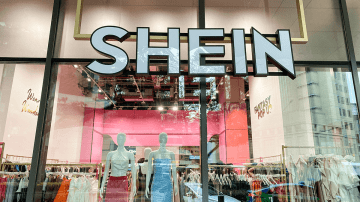Last week, early results from France’s snap election have brought uncertainty around France’s economy. Don’t forget to subscribe to the Glossy Podcast for interviews with fashion industry leaders and Week in Review episodes, and the Glossy Beauty Podcast for interviews from the beauty industry. –Danny Parisi, sr. fashion reporter
C’est la vie
French president Emmanuel Macron’s decision last week to hold a snap election backfired when it seemed like the far-right National Rally party won big. Multiple French pollsters predicted big wins for the party led by Marine Le Pen, which has long been associated with racism, anti-immigration and anti-European policies, though it did not win a full majority.
Financial stock prices in France were down when Macron first announced the election as investors predicted gridlock and market disruption. However, they bounced back earlier last week when pollsters first began reporting results. But analysts are still predicting a chaotic time ahead for France’s finances. Multiple potential scenarios — including a hung parliament, where no party has a majority, and a reversal of reforms made by Macron, like lowering France’s retirement age — could spook investors more than they already are.
That could be troublesome for the fashion industry. Not only are many of the biggest fashion brands in the world French, including one of the most valuable companies in the world, LVMH, but the French market is also a desirable audience for brands outside the country. This past week, American brand L’Agence, whose name was chosen to evoke the elegance of French fashion, opened a new flagship store in Paris. The 1,400-square-foot store is meant to serve as a springboard for L’Agence to build up its audience in France and gain greater access to the rest of the European market.
The chaos of the snap election also comes just before another crucial moment for France’s economy: the Olympics. The games are set to begin on July 26 and run through mid-August, bringing in over 7 million people to Paris. LVMH has partnered with the Olympics, as have dozens of other fashion brands who want to capitalize on the billion-dollar advertising opportunity.
But the Olympics also bring strain and disruption to the countries that host it, including the many millions of dollars they spend on the infrastructure needed to host the millions of guests. For example, France’s aging public transit system has already been singled out as a potential fault point for the Olympics as millions of new riders will test its limits.
France is still the fashion capital of the world, but it’s clear that, between the Olympics and the chaos of its political climate, fashion brands both inside and outside the country should prepare for an uncertain future.




